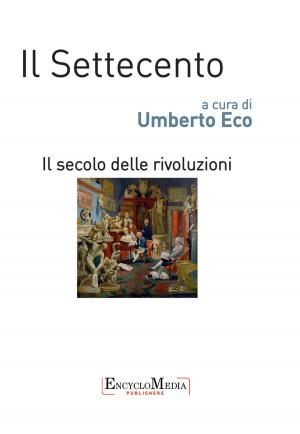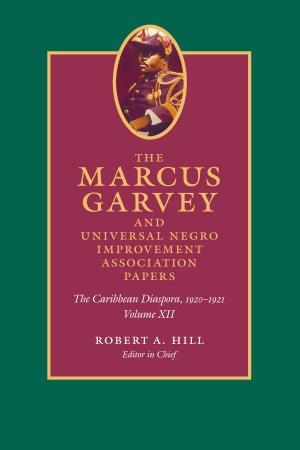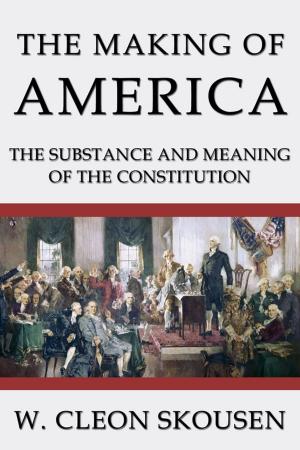Killing America: What Poisoned A Noble Experiment
Nonfiction, Social & Cultural Studies, Political Science, Politics, Economic Policy, History, Americas| Author: | Jon Mercurio | ISBN: | 9781311998323 |
| Publisher: | Jon Mercurio | Publication: | August 20, 2014 |
| Imprint: | Smashwords Edition | Language: | English |
| Author: | Jon Mercurio |
| ISBN: | 9781311998323 |
| Publisher: | Jon Mercurio |
| Publication: | August 20, 2014 |
| Imprint: | Smashwords Edition |
| Language: | English |
The United States started with such promise. Despite several flaws, the Constitution enabled a government, which unlike very few before it, preserved the rights of humans in a manner that also recognized the sovereignty of individual. Embodied in this was the notion that a self-reliant person could rise to the highest levels in society based solely on his ability and his fortitude; there were no rules or no one person who could deter the truly ambitious. In this new order government's role was viewed as the protector of all so that the work of the most ambitious didn't jeopardize the freedom of those with lesser goals. Those who did succeed generally found within themselves the idea of repaying the society that rewarded their efforts so well. It was this ideology that so strongly propelled America from a backwoods colonial entity to a world power in a short century. During that century a goodly portion of the world was being transformed from agricultural to industrial societies; people had to but didn't properly adjust to the new norms imposed by this change; and in its midst grew a political class that used the turmoil to forge a new order which was the antithesis of the original American idea. These politicians used a new power, vested in the central government by the 16th amendment, to redirect the path that America had been on. The new direction was the one that had been embraced by the peoples of other nations; nations that were just emerging from the totalitarian rule of a long lived aristocracy. America never had an aristocracy and should not have succumbed to the promises that socialism/communism promised; but American politicians succeeded in poisoning the minds of the populace, training them into believing that siren song of Marxian ideologies embedded in their "progressive programs" were a panacea. But what resulted is an America that lost its uniqueness, an America that looks just like the rest of the floundering world much of which has yet to emerge from a medieval mindset. All of this was enabled by the 16th amendment for it gave the 'siren singing' politician the wherewithal to wave addictive measures before a public unaware. Absent the huge and potentially larger sums of money collected through the income tax politicians could only wield empty promises, but the use of 'other peoples money' gave then the toolbox needed to dupe a large segment of America. Such ability to tax was exactly the issue that had awakened the sleeping giant that was America, and produced a revolution. The revival of that ability, enabled by the 16th amendment, poisoned the noble experiment that was built on the self-reliant nature of the pre-industrial nation. Marx had attempted to mold an attitude built on all the negative bases of the old aristocracies to fit the emerging industrial society. What he didn't realize was that his ideology could simply create a new type of aristocracy, one just as pernicious as the previous and in doing so destroy the basis for freedom. Strong central governments were the bane of humanity that enabled the American experiment, and it is the revival of the strong central government that is killing America. When one jointly examines the economic and social history of the US it is clear that the 16th amendment played a large role in America finding the apex of its ascendancy, and that any attempt at restoring the greatness must begin with the abolition of the ability of the central government to have a effective unlimited ability to redirect the resources of the strongest economies the world has ever seen to its own use.
The United States started with such promise. Despite several flaws, the Constitution enabled a government, which unlike very few before it, preserved the rights of humans in a manner that also recognized the sovereignty of individual. Embodied in this was the notion that a self-reliant person could rise to the highest levels in society based solely on his ability and his fortitude; there were no rules or no one person who could deter the truly ambitious. In this new order government's role was viewed as the protector of all so that the work of the most ambitious didn't jeopardize the freedom of those with lesser goals. Those who did succeed generally found within themselves the idea of repaying the society that rewarded their efforts so well. It was this ideology that so strongly propelled America from a backwoods colonial entity to a world power in a short century. During that century a goodly portion of the world was being transformed from agricultural to industrial societies; people had to but didn't properly adjust to the new norms imposed by this change; and in its midst grew a political class that used the turmoil to forge a new order which was the antithesis of the original American idea. These politicians used a new power, vested in the central government by the 16th amendment, to redirect the path that America had been on. The new direction was the one that had been embraced by the peoples of other nations; nations that were just emerging from the totalitarian rule of a long lived aristocracy. America never had an aristocracy and should not have succumbed to the promises that socialism/communism promised; but American politicians succeeded in poisoning the minds of the populace, training them into believing that siren song of Marxian ideologies embedded in their "progressive programs" were a panacea. But what resulted is an America that lost its uniqueness, an America that looks just like the rest of the floundering world much of which has yet to emerge from a medieval mindset. All of this was enabled by the 16th amendment for it gave the 'siren singing' politician the wherewithal to wave addictive measures before a public unaware. Absent the huge and potentially larger sums of money collected through the income tax politicians could only wield empty promises, but the use of 'other peoples money' gave then the toolbox needed to dupe a large segment of America. Such ability to tax was exactly the issue that had awakened the sleeping giant that was America, and produced a revolution. The revival of that ability, enabled by the 16th amendment, poisoned the noble experiment that was built on the self-reliant nature of the pre-industrial nation. Marx had attempted to mold an attitude built on all the negative bases of the old aristocracies to fit the emerging industrial society. What he didn't realize was that his ideology could simply create a new type of aristocracy, one just as pernicious as the previous and in doing so destroy the basis for freedom. Strong central governments were the bane of humanity that enabled the American experiment, and it is the revival of the strong central government that is killing America. When one jointly examines the economic and social history of the US it is clear that the 16th amendment played a large role in America finding the apex of its ascendancy, and that any attempt at restoring the greatness must begin with the abolition of the ability of the central government to have a effective unlimited ability to redirect the resources of the strongest economies the world has ever seen to its own use.















